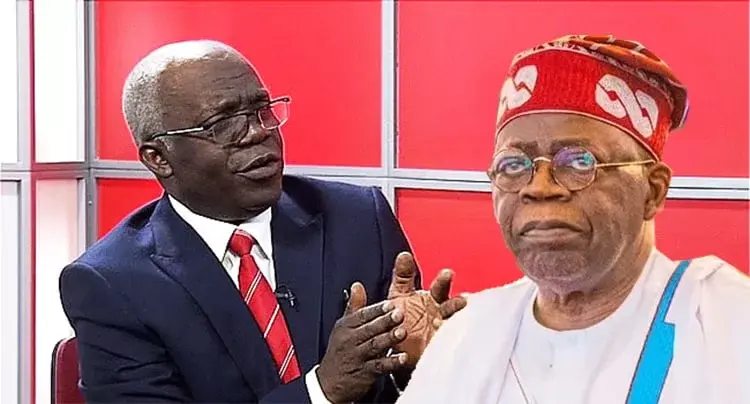Following the reversal of the presidential pardon by President Bola Tinubu, a human rights lawyer and Senior Advocate of Nigeria (SAN), Femi Falana, has described the exercise as embarrassing and poorly handled.
New Telegraph recalls that President Bola Tinubu had, last two weeks, approved clemency for 175 inmates under the constitutional prerogative of mercy.
However, following criticism, the Federal Government announced a review of the list, saying the process that produced the initial compilation was flawed, which led to Tinubu revoking the pardon of about 140 beneficiaries.
Speaking on Arise TV on Friday, Falana said the country was exposed to ridicule due to the inclusion of undeserving individuals on the list, some of whom had been recently convicted of serious offences.
According to him, the pardon process was flawed from the outset as it violated constitutional provisions guiding the exercise of such powers.
READ ALSO
Falana added that several persons convicted under state laws were also included, contrary to Section 212 of the Constitution, which vests the power to pardon such offenders in state governors.
He faulted the Federal Government’s explanation that the list had been reviewed and reduced from about 175 names to 35, insisting that the issue went beyond trimming numbers.
Falana called on the Attorney-General of the Federation to publicly apologise to Nigerians over what he described as a national embarrassment.
“It is not the first time that this exercise has been mishandled, but this time around, the country was exposed to odium, and there was no basis for it. Those who were not deserving of pardon were recommended for pardon.
“By virtue of Section 212 of the Constitution, only the governor of a state can pardon people convicted for stealing, obtaining by false pretence, murder or culpable homicide. But all those names were there.
“It is not enough to say we have reviewed the list and reduced it. The government owes itself a duty to ensure that such colossal embarrassment does not occur again.
“The very least the Attorney-General can do is to apologise. It is not done that way,” he added.















